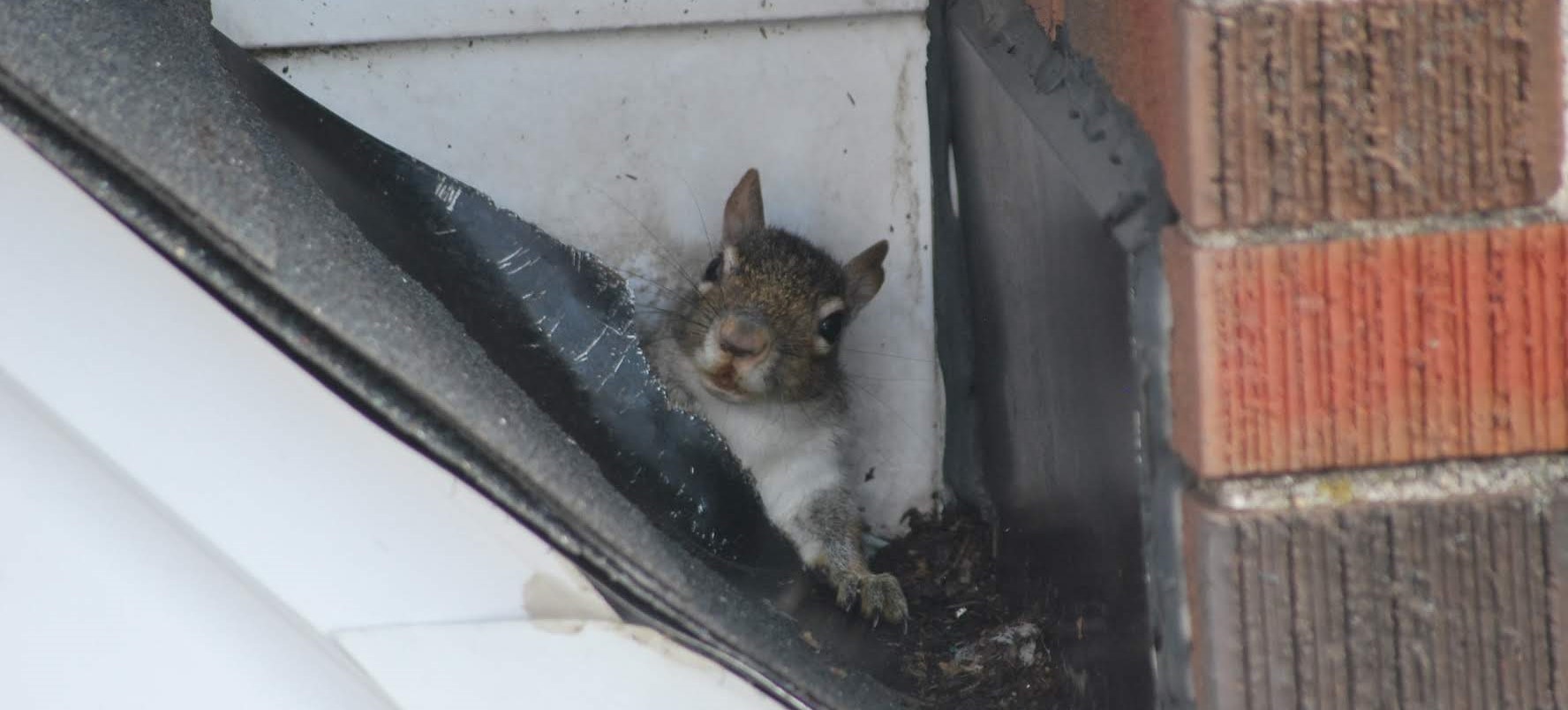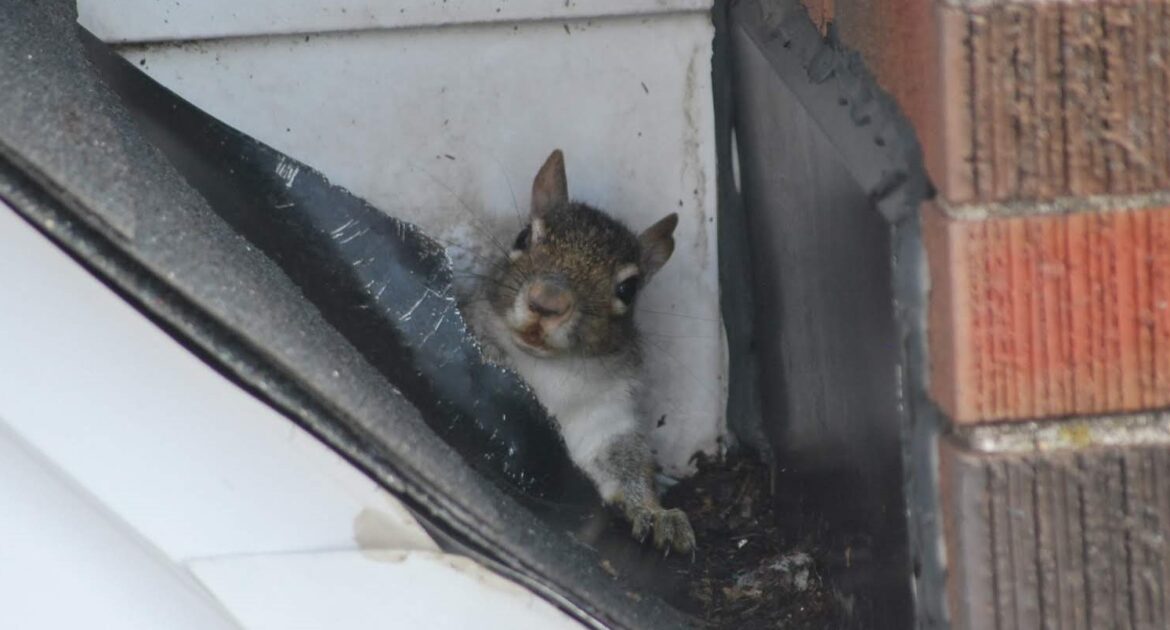Welcoming a squirrel into your backyard with the promise of food or affection might seem like an innocent way to get closer to nature. However, the dangers of taming squirrels reach far beyond what most people realize. Wild squirrel behaviour is unpredictable, and attempting to tame these animals near your home can lead to health risks, property damage, and unwanted interactions.
If you want to avoid taming squirrels and keep them away from your property, understanding the risks is essential. At Skedaddle, we’ve seen countless homeowners across Toronto face unintended consequences when trying to connect too closely with wildlife.
Dangers of Taming Squirrels
While the idea of feeding or taming squirrels may initially seem like a harmless activity, there are significant risks to consider. Encouraging a squirrel to feel comfortable around humans leads to problems for both the animals and the homeowners involved.
Health Risks
Squirrels often carry parasites and diseases that can pose serious threats to humans and pets. Parasites like fleas and ticks are common in wild squirrels, and these can spread diseases such as Lyme disease. Additionally, squirrels may carry salmonella, leptospirosis, and tularemia, which are harmful to humans. By encouraging close interactions, you increase the likelihood of these diseases being transmitted to your family or pets.
Wild animals, including squirrels, can also transfer bacteria through their droppings. Squirrel feces can contaminate water sources, soil, or even surfaces in your yard if the animals start visiting regularly. Breathing in the dried particles of their waste can put you at risk of diseases like hantavirus, which can cause severe respiratory issues.
Aggression and Unpredictable Behaviour
Squirrels, though small and seemingly harmless, are still wild animals with instincts. Their behaviour can be highly erratic, especially when they feel scared or cornered. A squirrel you attempt to feed or touch may view you as a threat and attack by biting or scratching. Their sharp teeth and claws can cause physical injuries, which may become infected.
When squirrels lose their fear of humans due to taming, they may become aggressive if food is withheld or if they feel stressed. This can create a dangerous situation, especially for children, who may not anticipate the sudden behavioural changes in a wild animal.
Dependency and Food Conditioning
One of the less obvious risks of taming squirrels is that it disrupts their natural behaviour. When squirrels become reliant on humans for food, they often lose their survival instincts. Known as “food conditioning,” this dependency creates long-term problems for the squirrels, such as decreased foraging ability and vulnerability during seasons when food is scarce.
Food-conditioned squirrels may also engage in destructive behaviour, such as chewing through bags or tearing up gardens in search of food. This makes them more likely to invade human spaces and cause further problems.
Wild Squirrel Behaviour
To understand why taming squirrels poses such an issue, it’s helpful to recognize their natural instincts and survival strategies. Squirrels are incredibly resourceful and adapt quickly, which is why they often find their way into residential properties.
Natural Habitat and Nesting
Squirrels are excellent climbers and highly independent animals. They naturally seek shelter in trees, attics, and other elevated areas. By offering them food and opportunities to settle near your home, you inadvertently encourage them to nest in or around your property, leading to costly damage to soffits, vents, and roofs.
Destructive Habits
Squirrels are notorious for their chewing habits, which help them keep their rapidly growing teeth in check. When they make their way into your home, they may chew on wires, insulation, and wooden beams, creating fire hazards and structural damage. They can even gnaw through plastic or aluminum, making it challenging to secure your property against their invasions.
Breeding Activity
Squirrels reproduce twice a year, typically in the spring and late summer. If squirrels become comfortable around your home, they may view your attic as the perfect spot to raise their young. Mothers become highly protective of their offspring, and the increasing squirrel population can lead to even more damage to your home.
Avoid Taming Squirrels
Use Humane Deterrents
To create an environment that discourages squirrels from entering your property, focus on removing their incentives to stick around.
- Eliminate Food Sources: Keep birdseed, pet food, or easily accessible trash secured in rodent-proof containers.
- Seal Entry Points: Check your home for small openings and cracks, particularly near the roofline, and use sturdy materials to seal them off.
- Trim Tree Branches: Ensure that branches do not extend too close to your home to prevent squirrels from using them as access points to the roof.
- Install Barriers: Use squirrel guards and deterrents on bird feeders and fence posts to keep them at bay.
Maintain a Safe Distance
Teaching your family the importance of observing wildlife from a distance is crucial. Bring your camera to capture some photos of any local squirrels, but resist the urge to feed or interact with them directly. Educating children about the risks of taming wild animals ensures their safety and helps build lifelong respect for wildlife.
For Torontonians, High Park is an iconic spot for wildlife watching. You’ll catch squirrels darting between trees and foraging for food in their natural environment. Visiting such areas allows you to enjoy wildlife in a safe and distant manner without disrupting their natural behaviour.
The Importance of Professional Assistance
If you notice signs of a squirrel problem on your property, it’s best to contact a wildlife removal service like ours at Skedaddle. While some homeowners attempt to solve the problem independently, improper handling of squirrels can lead to escalated aggression or greater damage to the home.
At Skedaddle, we specialize in safe and humane wildlife removal practices that prioritize the well-being of both animals and humans. With decades of experience, our team is equipped to assess your property, remove intruding squirrels, and implement exclusion measures that protect your home for the long term.
Why Choose Skedaddle for Squirrel Removal Services in Toronto?
At Skedaddle, we understand that dealing with squirrels in your home can be both stressful and challenging. That’s why we go above and beyond to provide industry-leading wildlife removal services that you can trust. With over 30 years of experience, we’ve established ourselves as the experts in safe, humane, and efficient squirrel removal. Our approach ensures not only the removal of the animals but also the prevention of future intrusions, offering homeowners peace of mind.
Our service stands out due to our professionalism and reliability. We tailor every solution to meet the unique needs of your home, providing transparent communication every step of the way. With a lifetime guarantee on our workmanship, you can rest assured knowing your home is secure. Choose Skedaddle for your squirrel removal needs to experience unparalleled expertise and customer care.
Don’t Wait for a Problem to Arise
Acting early to deter squirrels from becoming too comfortable near your home is key to avoiding health risks and structural damage. Use humane strategies to minimize interactions and encourage natural behaviour. If you’re concerned about squirrels causing damage to your home, it’s time to reach out.
Contact Skedaddle Wildlife Control in Toronto today for expert advice and professional services to protect your property and ensure the safety of your family and furry neighbours. Don’t try to take matters into your own hands—we’re here to help.




